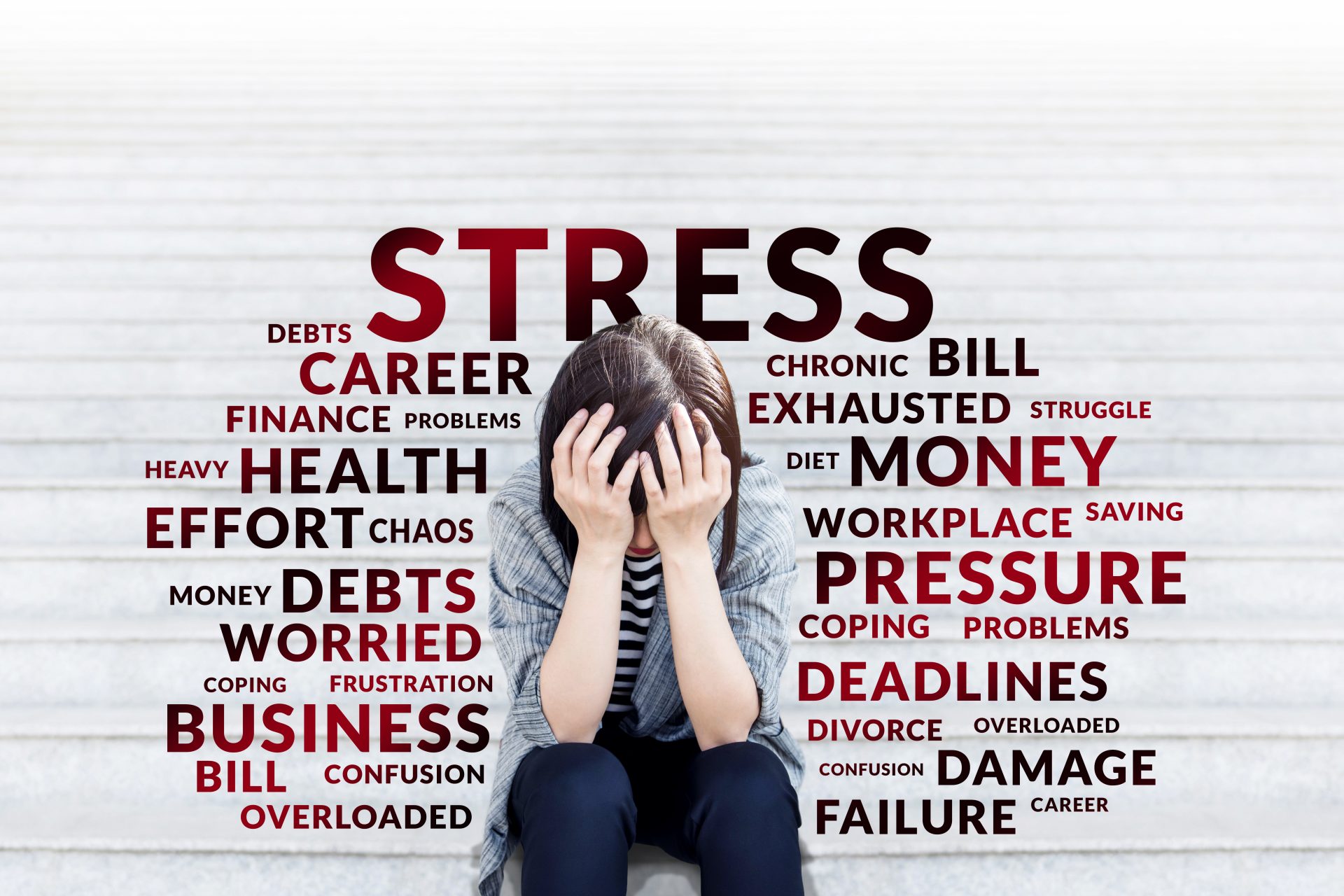Everyone experiences stress from time to time, and it’s considered a normal part of everyday life. However, suffering from prolonged or chronic stress may cause lasting detrimental effects on a person’s health and well-being. For one, stress can bring about feelings of anxiety, depression, fatigue, irritability, or restlessness. Along with these unpleasant feelings, a person who experiences chronic stress may suffer from sleep disorders, pains, aches, and mental ailments.
The human body’s response to stress and pressure may also have a negative physiological impact that can alter one’s appearance. The fight-or-flight response gets activated when someone feels unsafe, tired, or agitated. This response can be disruptive to bodily systems such as respiratory, circulatory, or digestive systems. Due to these disruptions, the health of particular body parts such as the skin, hair, teeth, and eyes may also decline.
If you’d like to know how stress can negatively impact your looks, here are some points you may find helpful:

Table of Contents
Stress Can Cause Hair Loss
Hair volume and strength are also essential for a youthful, healthy look. Having a full head of voluminous hair gives off a vibrant appearance, making it a desirable trait. However, those who suffer from chronic stress may experience excessive hair fall, which leads to thinning. Also, the hair may become more brittle and susceptible to damage because of prolonged stress.
Suffering from hair loss due to stress may become a vicious cycle, as one may automatically come after the other without proper intervention. Here are some ways you can deal with stress-induced hair loss.
- Eat a healthy balanced diet rich in biotin and protein to support healthy hair growth.
- Get adequate rest each night.
- Work out regularly.
- Learn relaxation techniques such as practicing yoga and meditation.
- Consult with a counselor, psychologist, or specialized treatment facilities, such as Jackson House to get support for mental and emotional health concerns.
- Be gentle with your hair by avoiding heat styling or harsh cleaning chemicals.
You can also ask your doctor for recommendations for hair growth supplements when the hair thinning has become more advanced and noticeable. Also, learning about coping strategies can help you manage the stress that comes with hair loss.
Stress Can Trigger Skin Problems
One of the most influential factors in a person’s appearance is a skin condition. Having healthy, glowing skin can instantly boost how a person looks, as it adds to one’s youthfulness and vibrance. On the other hand, skin problems such as acne, rashes, and dryness can quickly age someone’s appearance and make it look unhealthy.
A person can encounter these skin problems when experiencing chronic stress. These skin conditions are often caused by sleep deprivation, inadequate nutrition, lack of exercise, and poor hygiene, which happens without proper stress management. As a result, those suffering from stress become prone to skin problems.
Also, the body’s response to pressure can trigger more cortisol production. Cortisol is the stress hormone that stimulates oil release and production from sebaceous glands, making the skin oily and triggering acne eruptions.
Finally, stress can also weaken the immune system, and this causes an imbalance of bacteria in the skin, which can lead to redness, itchiness, and inflammation.
To avoid these skin problems, it’s essential to maintain a healthy diet, engage in physical activities, and follow a skincare routine to keep the skin clean, healthy, and glowing. Also, it’s best to have a regular sleep schedule to ensure that the body gets adequate rest as needed.
Chronic Stress Can Accelerate Wrinkle Development
Experts believe that stress can also accelerate signs of aging in the skin, particularly when it comes to wrinkle formation on the face and neck. Certain areas, such as the eyes, forehead, and lips are prone to wrinkle development since these spots are covered with thin skin. With chronic stress, it’s possible to see more wrinkles forming in these areas because the body’s response to triggers can cause the skin to lose elasticity and strength.
Moreover, those who suffer from sleep deprivation due to unmanaged stress are also likely to develop more wrinkles early. This circumstance is expected to occur since the skin produces more collagen when the body is asleep. Without quality rest, the skin won’t have enough collagen to retain its firmness and youthful glow. As a result, more lines and creases will develop on the neck, face, and hands.
To prevent advanced wrinkle formation, you’ll need to manage your stress levels. You can do this by getting enough rest every night, avoiding too much sun exposure, and following an anti-aging skincare routine.
Sleeplessness Causes Dark Eye Circles
Chronic stress can impair one’s ability to fall asleep on time and stay asleep for a sufficient period to let the body get adequate rest. Because of this, one’s stress levels cause sleep deprivation, which can negatively impact one’s appearance. One of the most common effects of sleep disturbances is dark eye circles or puffiness of the skin under the eyes.
People who are sleep-deprived become prone to dark eye circles because inadequate rest takes away the skin’s ability to retain strength and elasticity. Due to this, the muscles around the eyes weaken and swell, which triggers the formation of eye bags. Puffiness or swelling makes the eyes and face look tired, taking away from someone’s overall appearance.
To prevent having darkened eye circles, you’ll need to ensure that you’re getting adequate rest and that you can cope with stressors in healthy ways. For instance, if you feel that you’re unable to sleep due to overthinking or feeling overstimulated, you’ll need to allow more time to wind down before bed each night. Doing so will help you feel more relaxed, which will enable you to sleep better.
Stress Can Make You Eat Compulsively
Stress can drive someone to turn to food for relief, a habit that can eventually lead to weight gain. Stress eating is characterized by consuming food to cope with stressors and uncomfortable feelings such as anger or sadness. Because of stress, people sometimes eat when not hungry, making them eat more than usual.
Also, stress can make people crave sweets and salty food items, many of which are processed. Some of the most common food cravings for stress eating include chips, sweetened drinks, sugary snacks, and other food items packed with carbohydrates, sugar, and sodium. When consumed in large quantities, these types of food can contribute to weight gain and may also affect the appearance of other parts of the body, such as the skin and teeth. For instance, consuming food high in sodium can cause puffiness around the face, making the face look rounder and more prominent and minimizing its definition. On the other hand, overconsumption of sugary snacks and drinks can cause the skin to look dull and oily and cause acne eruptions.
To avoid stress eating, it’s essential to find alternative ways to cope with pressure and other unpleasant feelings. For instance, you can prepare healthy snacks for moments when you’re having cravings to help curb your appetite and keep your food intake on track. Meanwhile, you can also practice mindfulness when eating to keep track of how much food you’re consuming each meal. This way, you can pay more attention to what and how you’re eating and avoid consuming food on impulse.
Stress Can Make Your Forego Hygiene And Self Care Habits
People who are experiencing chronic stress could highly benefit from practicing personal care. Doing so will help them soothe aches and pains, care for their overall appearance, and boost their health. However, contrary to what they need, stress can discourage someone from practicing self-care and maintaining personal hygiene. It may be because of fatigue, anxiety, or depression, making people feel less energized to care for their individual needs.
More often than not, one’s appearance may begin to decline if one’s unable to maintain hygiene and self-care. For instance, the skin may look dull, dry, and flaky with a lack of proper cleaning and moisturizing. On the other hand, the teeth may discolor or decay without regular brushing and flossing.
Here are some tips you may find helpful when stress makes it challenging to practice self-care:
- Allow more time during the day for showering, bathing, and other hygienic practices, which may be especially useful for days when you lack energy or motivation.
- Set aside time for relaxing activities, such as meditating, listening to music, or getting a massage. These are forms of self-care that you can incorporate into your daily activities.
- Schedule time for social activities to unwind and do things that you enjoy.
- When feeling overstimulated, avoid using electronic gadgets for a period and engage in relaxing activities that would help your mind relax.
Apart from these, you can also enlist the help of professionals, such as stylists, massage therapists, and other specialists who can help you keep your body clean and healthy. This way, you can get the assistance you need when you’re feeling less motivated to engage in self-care.
Conclusion
Stress, though common, may bring about various detrimental effects on the body, which affect a person’s appearance. It causes people to consume more food than usual, sleep less, and lack the energy to care for themselves. Hence, it’s essential to learn coping strategies and enlist the help of loved ones and professionals to ensure that your health and well-being are cared for and protected even on the most challenging days.

